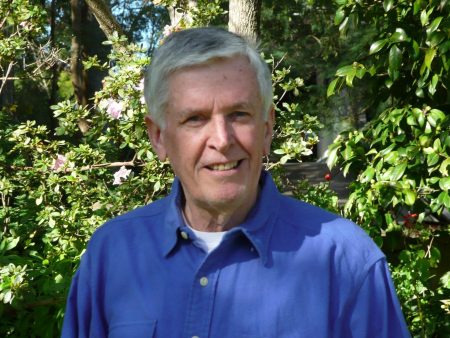John Tulloh. Israel the promised land of democracy.
March 13, 2015
Surrounded by a hostile region where even basic freedoms cannot be taken for granted, Israel is to be admired for its electoral democracy at least. It has a boisterous political system full of wheeling and dealing with everybody having a say. One party even has a 101-year-old leader. Electioneering is in full swing right now for next weeks general election (March 17) with no less than 11 parties fielding candidates.
The next Prime Minister will be either the incumbent, Likuds Benjamin Netanyahu, aiming for an unprecedented fourth term, or Labors Isaac Herzog, a man with Irish roots and the name of political royalty in Israel. Polls have them neck and neck.
But there is an unprecedented twist. The third most popular leader is a young Moslem lawyer, Ayman Odeh, who heads a coalition of three Arab parties known as the Joint Arab List. This unites a historically splintered demographic covering the interests of 20% of Israels population. It is conceivable that, if Netanyahu and Herzog should end up forming a grand coalition, Odeh could find himself the official official opposition leader.
Latest polls suggest Likud and Labor each will win 24 seats in the 120-seat Knesset. The Joint Arab List may win as many as 15. The outcome of Israeli elections is always a coalition government and whoever is Prime Minister has to be an astute juggler of different party interests.
Israels parliamentary make-up is complex. Each party submits a list of candidates. The number of seats it gets is proportional to the number of votes it receives. Thus if a party wins 20% of the votes, it gets 20% of the seats. The leading parties, traditionally Labor and Likud, look for partners to reach a majority of seats and then approach the President of Israel to choose who should form the new government. This process can last up to 40 days.
Here in Australia we read about Israel in the context of many problems - Iran, the Palestinians, terrorism, settlements, anti-Semitism, Gaza, Hamas, Hezbollah and external threats. But they are minor issues in this election. Unsurprisingly, it is mainly about problems all voters have to deal with: a struggling economy and the high cost of living.
Netanyahu, leader of the Likud Party, is now Israels second longest-serving Prime Minister. He represents the Right wing which wants to consolidate the Jewish presence wherever he can at the expense of Palestinians, encourage settlements in the West Bank and constantly alert Israelis to security issues. Talks with the Palestinians are hardly a talking point. Nor is the Iranian nuclear threat despite Netanyahus long-held fixation with it, ramming that home in a speech to the US Congress earlier this month.
Herzog, leader of the Labour Party since 2013, represents the Centre-Left known as the Zionist Union. His coalition partner is Tzipi Livni, the former Justice Minister and leader of the Leftist Hatnua Party. Her party symbol for this election is Che Guevara of all people. He was certainly no friend of Israel, but for Livni he represented change.
The Prime Minister and his challenger are two contrasting people. Netanyahu is not popular - less than 40% popularity. He has brought about little change. Poverty has increased and the economy is in bad shape. According to supporters quoted by the Washington Post, he is arrogant. But they admire his swagger. Hes a tough guy in a tough neighbourhood. Polls suggest Israeli voters may be tired of Netanyahu, but many cannot imagine the Prime Ministers office without him. In a recent poll of preferred leader, 44% opted for Netanyahu and 36% wanted Herzog.
A former head of the Mossad spy agency, Major-General Meir Dagan, despairs of todays Israel. There is a lack of vision, a lack of direction and determination and a dearth of exemplary leadership, he told a rally of 80,000 people in Tel Aviv as reported by Ynetnews.com. I fear hesitation and stagnation. I fear - above all - a crisis at the helm. The crisis we are experiencing today is the worst that I can remember since the creation of the state.
Herzog is a dark horse. A lawyer, he is the grandson of the chief rabbi of Ireland and later Israel and the son of a famous Israeli general and diplomat. The questions of poverty and living costs head his agenda. He also wants to settle Israels borders once and for all. I will lead Israel in a different direction, he says. Unlike the forceful Netanyahu, he is soft-spoken and has been described as being like a professor.
Much hope rests on his small shoulders, the Haaretz newspaper columnist Asher Schechter wrote. A Herzog supporter, he went on to compare the challenger to a small animal that uses cunning and wit to survive in the jungle.
The controversial question of Israel becoming officially the Jewish State is not an immediate issue. A Bill has been drawn up, but has not yet had a preliminary reading. As it is, only one third of the Knessets current MPs have indicated their support.
Visionary individual leadership in Israel is nigh on impossible because whoever is the Prime Minister has to appease so many different and sometimes opposing interests in order to govern. Just like our Senate. In short, Israelis probably will end up voting for business as usual whether they want it or not.
FOOTNOTE: A few days ago, Netanyahu visited a crowded Jerusalem market to meet voters. He stopped at a coffee shop and bought an espresso, paying with a 100 shekel note. As reported by the Jerusalem Post, the woman serving him paid him back with 87 c_oins_ as a protest against his economic policies, which she said harmed small businesses. It is to Israels credit that such a gesture to a countrys leader can be shrugged off whereas it would be unthinkable in its hostile neighbours.
John Tulloh had a 40-year career in foreign news.
